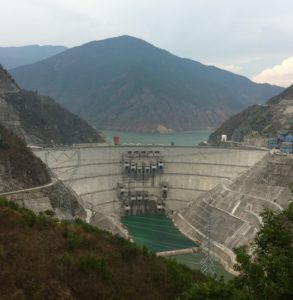This essay is part of a series by leaders and members of ACRE on efforts to increase climate resilience. Views expressed are the author’s.
The built environment is a critical component in any discussion about achieving climate resilience. Communities are facing unprecedented challenges of responding to the increasing number, intensity, and frequency of disaster events, many driven by climate change. In turn, buildings and infrastructure will face a changing set of risks over their lifetime. It is time to act accordingly, exploring new approaches and research methods to address these challenges.
Building codes and the activities that support their effective use are central to the realization of a climate resilient future. However, most building codes used around the world rely on historical data to support requirements related to structural and atmospheric loads for wind and snow/ice, energy use/heat stress, flooding, and wildfire protection. A concerted effort to translate the latest knowledge from the climate science community into actionable data that building scientists can use is essential. The International Code Council (ICC), developer of model building codes and standards used across the globe, has recognized the need to adapt codes and standards to incorporate future focused climate risk. ICC helped lead the formation of the Global Resiliency Dialogue, recognizing that many countries and code development organizations are facing similar needs.
The Global Resiliency Dialogue was established in 2019, convening building code development and research organizations from Australia, Canada, New Zealand and the United States; including the International Code Council, Australian Building Codes Board, the National Research Council of Canada, and the New Zealand Ministry of Business, Innovation and Employment. The Dialogue is a joint initiative seeking to inform the development of building codes that draw on both building science and climate science to improve the resilience of buildings and communities to intensifying risks from weather-related natural hazards.
The members of the Global Resiliency Dialogue have undertaken a work plan that involves the gathering of global data through two surveys and the use of that data to produce international resilience guidelines for buildings. The first survey captured information on how climate data is currently used in building codes and standards, while the second covered potential methods and research needs to effectively address future climate risk in codes. The release of the second publication, Delivering Climate Resilient Building Codes and Standards, was announced by representatives of the Dialogue in a hybrid presentation during COP26 in Glasgow.
The international resilience guidelines that are currently under development will aid jurisdictions across the globe to better prepare the building stock to withstand extreme weather events, including high wind, flooding, and wildfire, that the evidence and science indicate have been and will continue to increase in frequency and duration. The guidelines will provide principles and a framework that codes and standards organizations can use to inform their own processes and practices. Groups like the Alliance for a Climate Resilient Earth (ACRE) help voice the threats of climate-related risk and advocate for change to support a resilient future.
In adapting to the impacts of climate change, it is critical to recognize that the risks the built environment will face in the future are different than those of the past. Codes, standards and the design process must adapt to recognize these changing risks. Bringing together the latest research and modeling from climate scientists with the data and information needs of building scientists is essential. Engaging in strategic collaborations like the Global Resiliency Dialogue to assist in aligning expectations for building durability and resilience with the projection of future hazards is increasingly important in response to a changing climate and increased hazard events. Only then can communities realize a resilient future.
To learn more about the Global Resiliency Dialogue visit our website at www.globalresiliency.org. To learn about other ICC initiatives to support climate resilience visit www.iccsafe.org.



